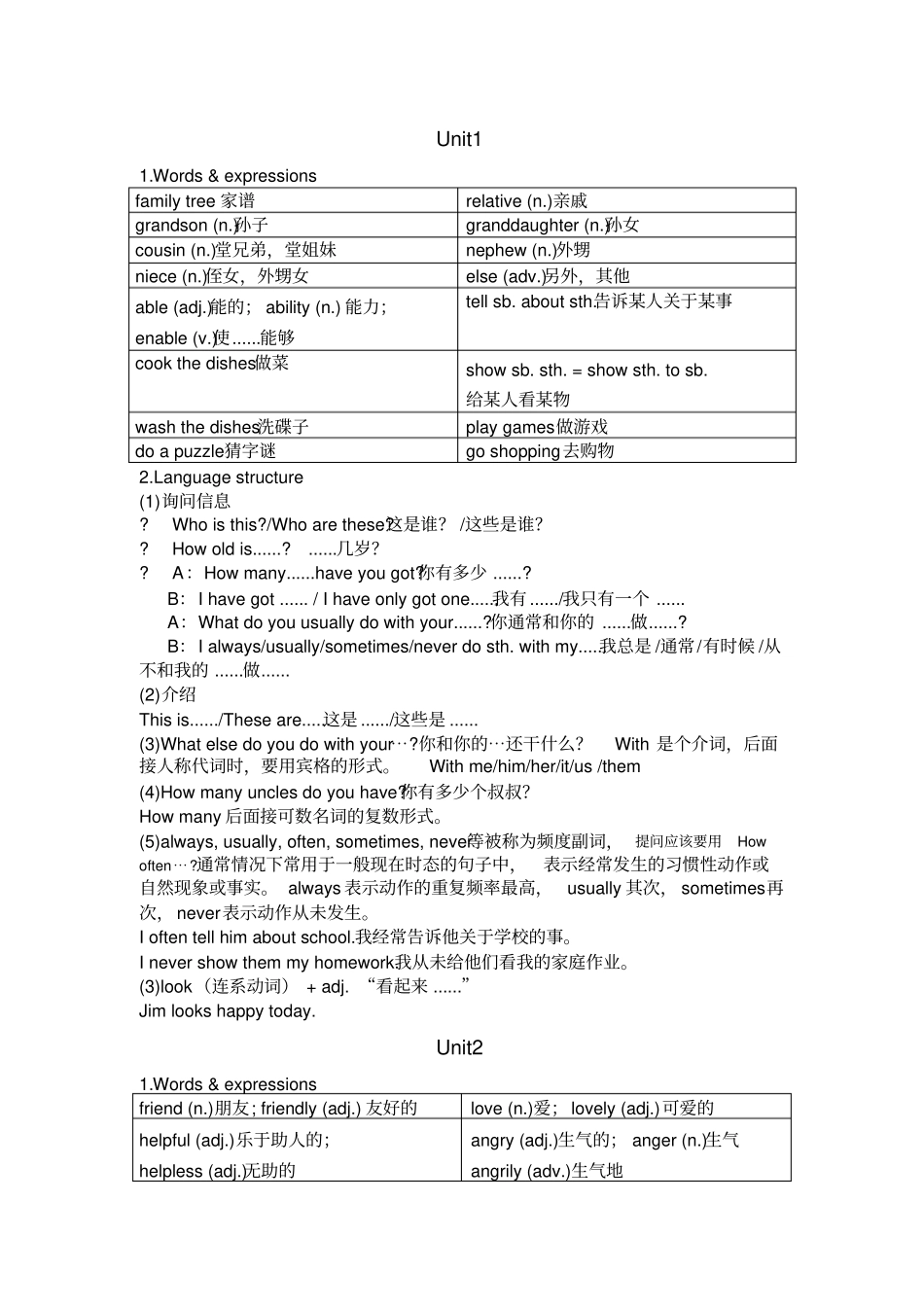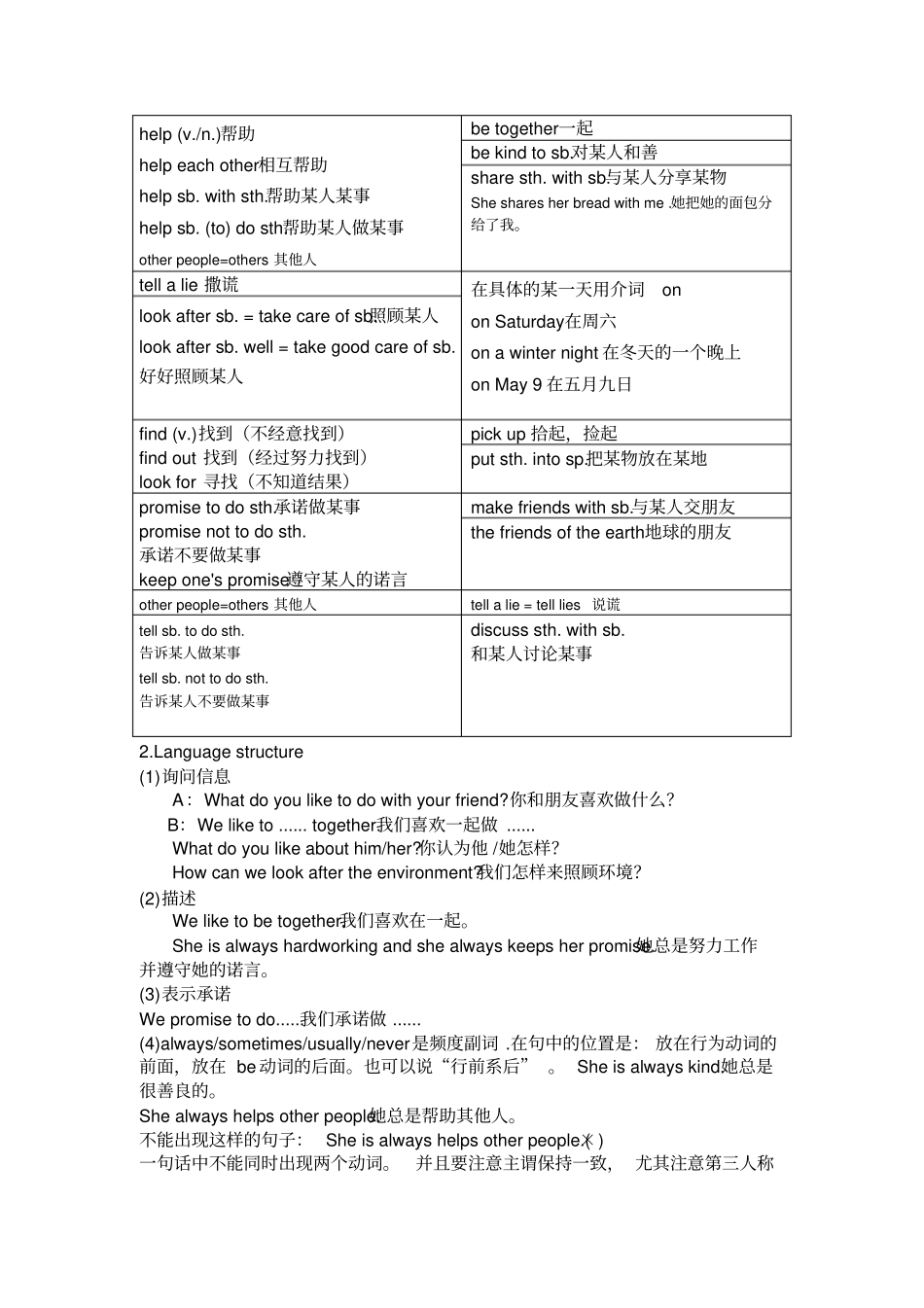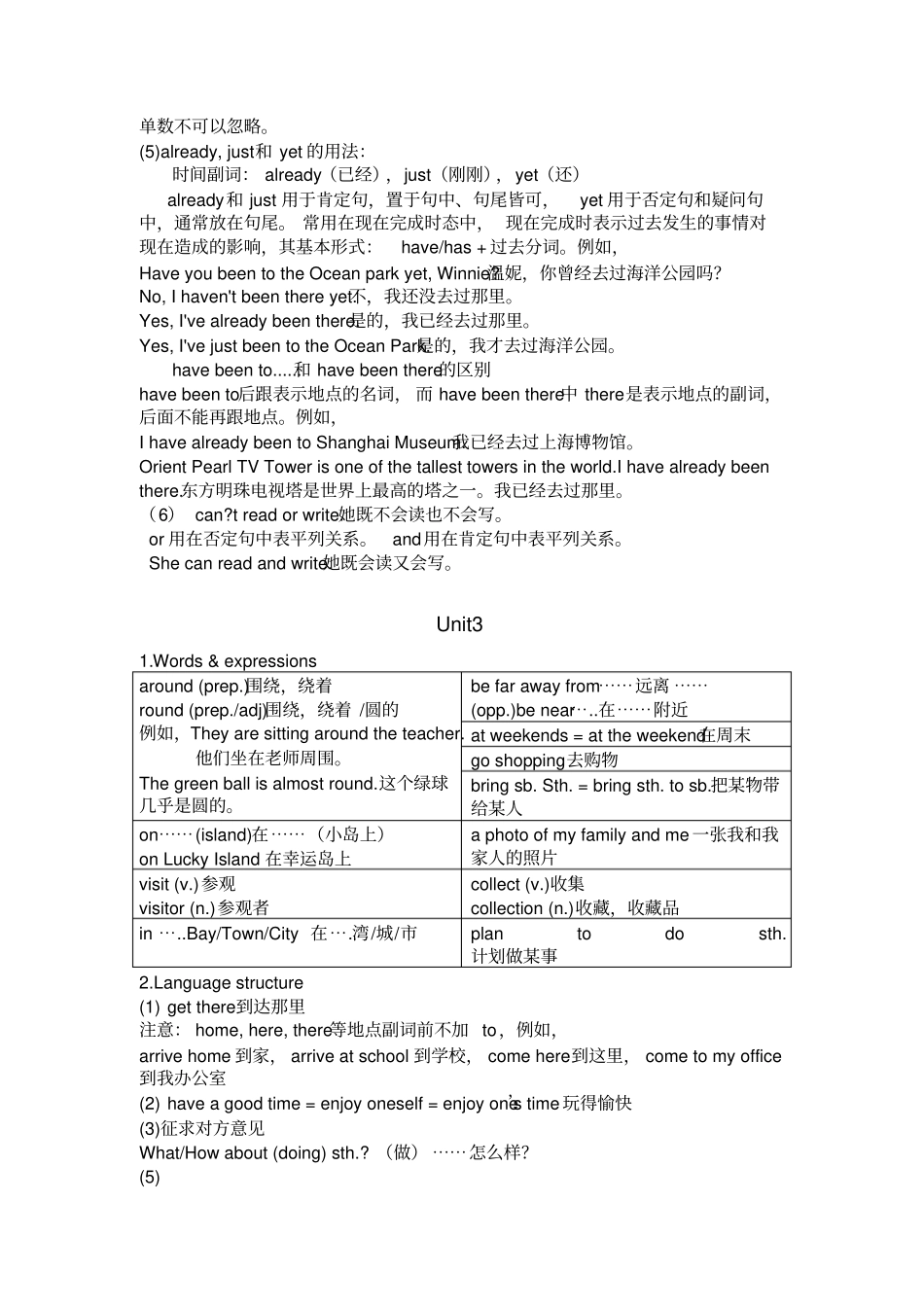Unit1 1.Words & expressionsfamily tree 家谱relative (n.)亲戚grandson (n.)孙子granddaughter (n.)孙女cousin (n.)堂兄弟,堂姐妹nephew (n.)外甥niece (n.)侄女,外甥女else (adv.)另外,其他able (adj.)能的; ability (n.) 能力;enable (v.)使......能够tell sb. about sth.告诉某人关于某事cook the dishes做菜show sb. sth. = show sth. to sb. 给某人看某物wash the dishes洗碟子play games做游戏do a puzzle猜字谜go shopping去购物2.Language structure(1)询问信息?Who is this?/Who are these?这是谁? /这些是谁??How old is......? ......几岁??A:How many......have you got?你有多少 ......? B:I have got ...... / I have only got one......我有 ....../我只有一个 ...... A:What do you usually do with your......?你通常和你的 ......做......? B:I always/usually/sometimes/never do sth. with my......我总是 /通常/有时候 /从不和我的 ......做...... (2)介绍This is....../These are......这是 ....../这些是 ...... (3)What else do you do with your⋯?你和你的⋯还干什么?With 是个介词,后面接人称代词时,要用宾格的形式。With me/him/her/it/us /them (4)How many uncles do you have?你有多少个叔叔?How many 后面接可数名词的复数形式。(5)always, usually, often, sometimes, never等被称为频度副词, 提问应该要用How often⋯?通常情况下常用于一般现在时态的句子中,表示经常发生的习惯性动作或自然现象或事实。 always 表示动作的重复频率最高,usually 其次, sometimes再次, never表示动作从未发生。I often tell him about school.我经常告诉他关于学校的事。I never show them my homework.我从未给他们看我的家庭作业。(3)look(连系动词) + adj. “看起来 ......”Jim looks happy today. Unit21.Words & expressionsfriend (n.)朋友; friendly (adj.) 友好的love (n.)爱; lovely (adj.)可爱的helpful (adj.)乐于助人的;helpless (adj.)无助的angry (adj.)生气的; anger (n.)生气angrily (adv.)生气地help (v./n.)帮助help each other相互帮助help sb. with sth.帮助某人某事help sb. (to) do sth.帮助某人做某事other...


